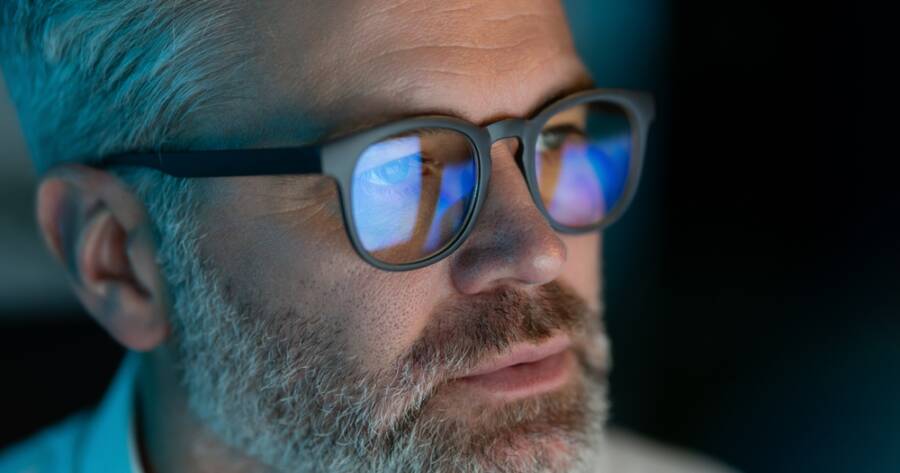With increasing screen time, more people are turning to blue light glasses to protect their eyes and improve sleep quality. These glasses are designed to block or filter blue light emitted by digital devices, which is often blamed for disrupting sleep. Explore how blue light glasses might affect your sleep and whether they are worth incorporating into your routine.
Understanding Blue Light and Its Impact on Sleep
Blue light is a type of high-energy visible light emitted by digital screens, such as those on smartphones, tablets, and computers. It is also present in natural sunlight. While blue light during the day can boost alertness and improve focus, excessive exposure to it at night can interfere with sleep. This is because blue light affects the production of melatonin, the hormone that regulates sleep.
When you use digital devices late into the evening, the blue light exposure can trick your body into thinking it’s still daytime, which can delay sleep onset and disrupt your circadian rhythm. Over time, this disruption may lead to poorer sleep quality, making it harder to fall asleep and stay asleep. This is where blue light glasses come into play.
How Do Blue Light Glasses Work?
Blue light glasses are designed to filter out or block a portion of the blue light emitted by screens. These glasses often have special lenses that are coated with a yellow-tinted filter. The idea is that by reducing blue light exposure, the glasses can help minimize its impact on melatonin production and support healthier sleep patterns.
While blue light glasses are often marketed as a solution for eye strain, they are also promoted for their potential to improve sleep quality. Many users report feeling less tired and more rested after using them in the evenings, leading to the assumption that they might enhance sleep. However, it’s important to examine the evidence supporting these claims.
Scientific Evidence: Do Blue Light Glasses Actually Improve Sleep?
There has been some research into the effectiveness of blue light glasses for improving sleep, but the results are mixed. Some studies suggest that blocking blue light in the evening can help improve sleep quality. Studies have found that participants who wore blue light-blocking glasses before bed experienced better sleep quality compared to those who did not.
On the other hand, other studies have shown minimal or no significant improvement in sleep for individuals wearing blue light glasses. The effects of blue light on sleep may vary depending on the individual and the amount of screen time they engage in. While blue light glasses may offer a mild benefit for some people, they may not be a miracle solution for everyone.
Additional Strategies for Better Sleep Quality
While blue light glasses may offer some benefits, they are only one part of the equation when it comes to improving sleep quality. Here are a few other strategies that can help ensure a better night’s rest:
- Limit screen time before bed: Even with blue light glasses, it’s still a good idea to minimize screen exposure in the hour or two leading up to bedtime. Engaging in activities like reading, journaling, or meditating can help signal to your brain that it’s time to wind down.
- Create a relaxing bedtime routine: Establishing a routine that promotes relaxation — such as dimming the lights, taking a warm bath, or practicing deep breathing exercises — can help prepare your body for sleep and support a restful night.
- Optimize your sleep environment: Ensure your bedroom is conducive to sleep. Keep the room cool, dark, and quiet, and use comfortable bedding to help promote deeper, uninterrupted rest.
Be mindful of caffeine and food intake: Avoid consuming caffeine or heavy meals late in the day, as these can interfere with your ability to fall asleep.
Do Blue Light Glasses Improve Sleep?
While blue light glasses may provide some relief from eye strain and could potentially improve sleep quality for certain individuals, they are not a one-size-fits-all solution. Their effectiveness in enhancing sleep largely depends on how much screen time you have, how sensitive you are to blue light, and how you implement other healthy sleep habits.

